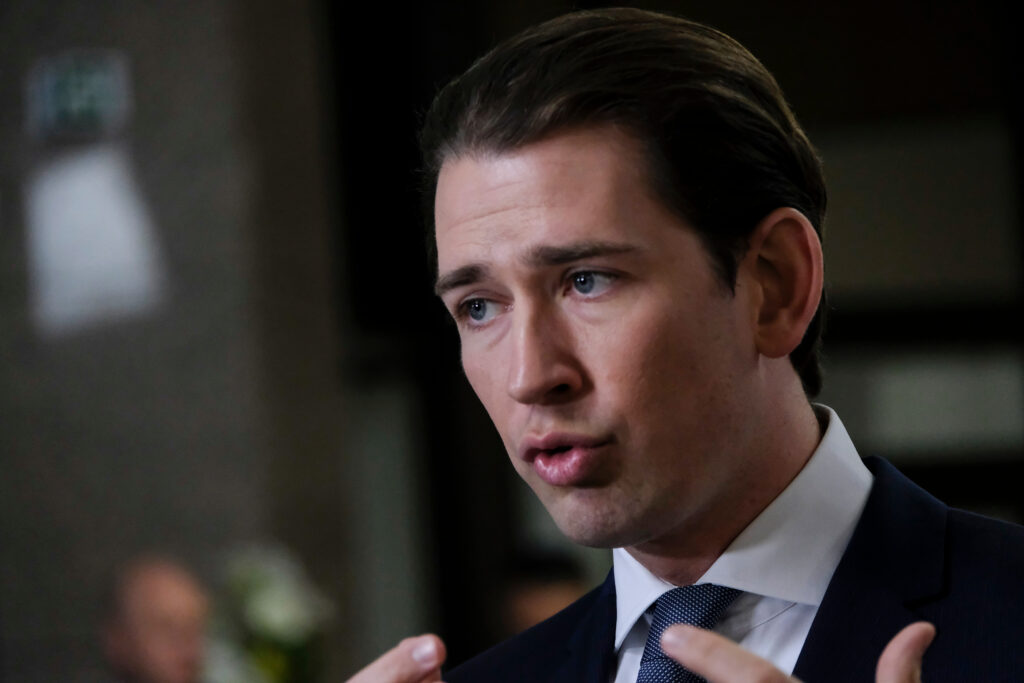Former Austrian Chancellor Sebastian Kurz has been cleared of charges that he lied under oath to parliament. On Monday, Vienna’s Higher Regional Court overturned an earlier ruling that had found Kurz guilty and sentenced him to an eight-month suspended prison term. This decision closes one of Austria’s most talked-about political trials in recent years.
Acquittal After Appeal
The ruling came quickly after a short appeals hearing. According to the Austria Press Agency, judges ruled that there was not enough proof Kurz had knowingly misled a parliamentary committee. He had faced allegations of giving false testimony during a 2020 inquiry into the creation of Austria’s state holding company, OeBAG, and the hiring of his close ally Thomas Schmid as its director.
While the original court believed Kurz had not told the full truth, the appeals court found that his words did not break the law. Judges decided that he did not purposely try to mislead the inquiry. Kurz, now 38, had always denied wrongdoing.
Reaction from Sebastian Kurz
Speaking outside the courthouse, Kurz appeared relieved. “What came out is what I’ve always said — that I didn’t lie to the parliamentary inquiry,” he said. He thanked his supporters and said he now plans to focus on his family.
However, Kurz also showed sadness over the fact that his former chief of staff, Bernhard Bonelli, did not receive the same outcome. Bonelli’s six-month suspended sentence for false testimony was upheld. Kurz said he regretted the court’s decision in Bonelli’s case.
A Case Rooted in Power and Politics
The charges were linked to a time when Kurz led Austria from 2017 to 2019. During that period, his conservative People’s Party shared power with the far-right Freedom Party. The government set up OeBAG to manage the state’s stakes in big businesses like OMV and Telekom Austria.
The 2020 parliamentary inquiry looked into whether political favors were used in public appointments. Kurz told lawmakers he had little to do with picking OeBAG’s board. But later, leaked text messages showed that he had taken a stronger role than he claimed.
This led to accusations that he had misled parliament, a serious crime in Austria. The initial court believed the texts showed clear intent. But the appeals court ruled that the meaning of the messages could be interpreted in different ways.
Political Fallout and Comeback Hopes
Kurz stepped down as chancellor in October 2021 after separate corruption investigations put pressure on his leadership. Even then, many in his party stood by him. He later left politics altogether in December 2021 and has since worked in the private sector, including a role with U.S. investor Peter Thiel.
Despite his legal troubles, Kurz remained a key voice in European conservative politics. Some had even speculated about a political comeback if his legal battles ended in his favor.
With this ruling, those rumors may grow louder. But Kurz himself has not signaled any plans to return to office.
A Rare Political Trial
This trial marked the first time in over 30 years that a former Austrian chancellor stood before a criminal court. The case attracted global media coverage, not just for its legal aspects but also because of its potential impact on Austria’s political system.
The People’s Party remains in government under current Chancellor Christian Stocker, though it came in second in the national elections last September. The shadow of Kurz’s trial had loomed large over recent campaigns and policy debates.
Now, with the case closed, political observers will watch closely to see how the verdict affects voter trust and party leadership.
Broader Context: Trust in Institutions
The Kurz trial comes amid a global push for more transparency in politics. Across Europe, citizens are demanding honesty and accountability from elected leaders. In that light, Kurz’s acquittal raises questions about legal standards and public expectations.
Critics of the original trial said the evidence was too weak. Supporters argued that even small lies from top officials must be punished. The debate continues.
In 2019, Austria faced a major political scandal known as the Ibiza affair, which also involved political deals and secret recordings. That event led to early elections and helped shape the legal environment Kurz would later face.
With the appeal ruling, Kurz is now officially cleared. While his political future is still uncertain, his legal troubles — for now — have come to an end. He has promised to stay silent about future plans, choosing instead to focus on his personal life.
The full impact of this case on Austrian politics will become clear in the coming months. But one thing is certain: Sebastian Kurz’s story remains a key chapter in modern European political history.


